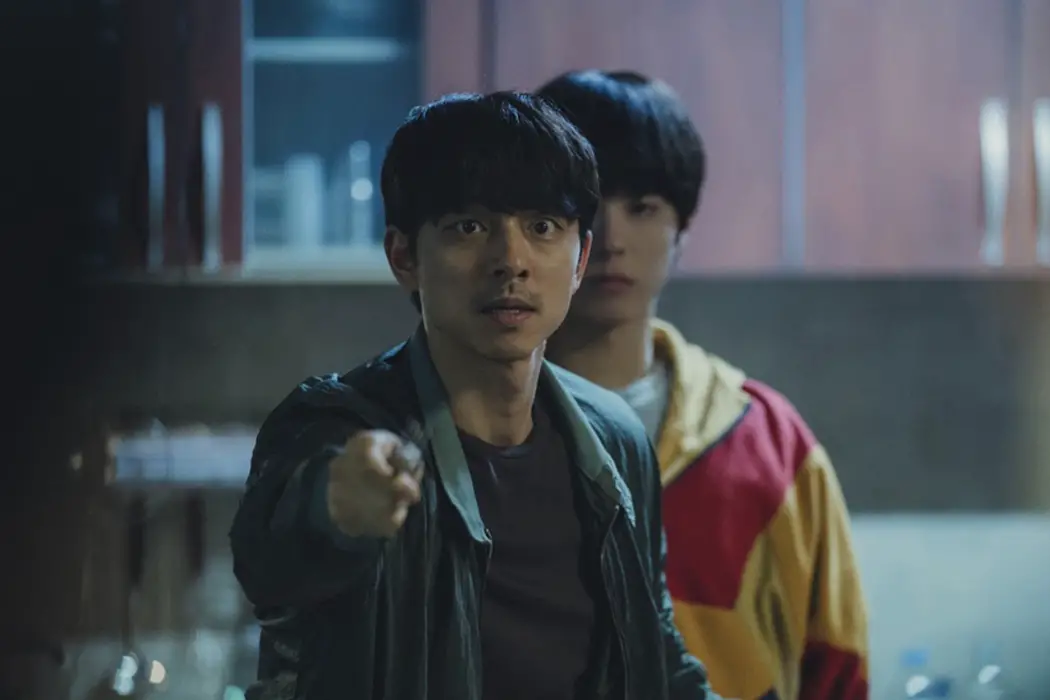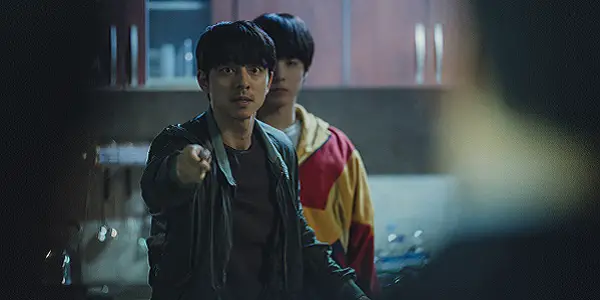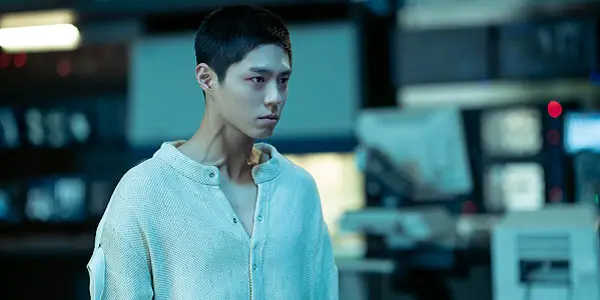SEOBOK: PROJECT CLONE: Shiny Not-So-Happy People

Lee Jutton has directed short films starring a killer toaster,…
Gong Yoo is having a moment. The Korean actor, a mainstay of film and television who is probably best known to global audiences as the hero of modern horror classic Train to Busan, recently had a pivotal cameo in Netflix’s Squid Game before appearing alongside fellow star Bae Doona in the science-fiction series The Silent Sea (in which he managed to turn neck tattoos into the hottest new accessory).
Ruggedly handsome and incredibly charismatic, Gong is the kind of actor who elevates everything he is in, from gooey romantic television series to action-packed horror films. That includes Seobok: Project Clone, a science-fiction thriller in which Gong is given the job of guarding and transporting the first human clone (played by romantic drama regular Park Bo-gum). And while the film devolves all too quickly into a cavalcade of unfortunate dialogue and confusing double-crossing, Gong’s performance in it is a reminder of his considerable star power—and the main asset of Seobok: Project Clone.
Harder, Better, Faster, Stronger
Ki-heon (Gong) is a former intelligence agent suffering from terminal brain cancer; his life has become little more than all-too-brief respites between bouts of agonizing pain and regret for previous life choices. However, following the assassination of an important scientist, Ki-heon is dragged out of his self-imposed gutter for a very special mission. He is taken to a lab where he meets Seobok (Park), a human clone created via genetic engineering whose cells hold the secret of eternal life. If Ki-heon can successfully protect Seobok as he is transported from one place to another, he’ll be rewarded with cancer treatment created from Seobok’s magical, healing cells.

Unfortunately, getting Seobok from Point A to Point B is far more complex — and dangerous — than Ki-heon had originally thought. Various groups, including terrorist organizations and rival governments, want to get their hands on Seobok and either take advantage of his considerable powers or destroy him so that no one can. And, naturally, the motivations of the scientists responsible for Seobok are far less noble than they first appear. Ki-heon is willing to do whatever it takes to protect Seobok and his own chances of his cancer being cured, but the more time he spends with the surprisingly thoughtful and emotional clone, the more he begins to doubt the purpose of his mission.
Startup Chime
Written and directed by Lee Yong-ju (Possessed, Architecture 101), Seobok: Project Clone awkwardly attempts to straddle the line between philosophical drama and action thriller, with just as many scenes of the two leads asking each other pseudo-deep questions about life and death and purpose as there are scenes of Ki-heon beating up bad guys while Seobok uses his telekinetic powers (!!!) to stop oncoming bullets and throw people through the air. The result is a tonally uneven film that doesn’t quite succeed in either of the things it sets out to do.
As the film progresses, it becomes increasingly difficult to keep track of who is chasing Seobok and why. Lee’s script relies too heavily on tropes that have been worn thin in other, better films that have come previously; when the various twists and reveals come, one is less shocked than bemused: “Oh, that’s it? I thought it would be something more.” Fortunately, the action sequences that periodically punctuate the film, including the explosive finale, are worth one’s attention regardless; the special effects used to illustrate Seobok’s telekinetic powers are undeniably cool, especially when paired with such a sweet young face as Park’s.

But the real reason to bother with Seobok: Project Clone is the relationship between the two leads. Gong and Park have a warm, brotherly chemistry that only grows throughout the film as Ki-heon begins to see Seobok as less of a means to an end and more of an individual in his own right. Seobok’s knowledge of his own origins, and his discomfort with them, gives Park more to do than one would expect from such a role (indeed, he cries a lot more than one would expect from a clone). And while Gong is saddled with a role quite similar to his character in The Silent Sea — right down to the reluctant involvement with genetically modified clones! — not to mention every other “antihero with a dark past” in recent memory, his performance elevates the character beyond mere cliche. He’s at his best when allowed to be bitter and snarky, delivering those lines with a snap that should energize even the most exhausted viewer.
Conclusion
While much of the dialogue in Seobok: Project Clone is unfortunately reliant on familiar platitudes when delivered by Gong and Park, one is far more forgiving than one could (or should) be. It’s all too easy to be emotionally invested in their journey together, even in such an altogether generic film.
What do you think? Are you a fan of Gong Yoo? Share your thoughts in the comments below.
Seobok: Project Clone is available on Blu-ray and digital in the United States beginning February 15, 2022.
Watch Seobok: Project Clone
Does content like this matter to you?
Become a Member and support film journalism. Unlock access to all of Film Inquiry`s great articles. Join a community of like-minded readers who are passionate about cinema - get access to our private members Network, give back to independent filmmakers, and more.
Lee Jutton has directed short films starring a killer toaster, a killer Christmas tree, and a not-killer leopard. Her writing has appeared in publications such as Film School Rejects, Bitch: A Feminist Response to Pop Culture, Bitch Flicks, TV Fanatic, and Just Press Play. When not watching, making, or writing about films, she can usually be found on Twitter obsessing over soccer, BTS, and her cat.













